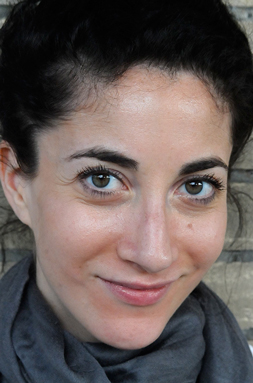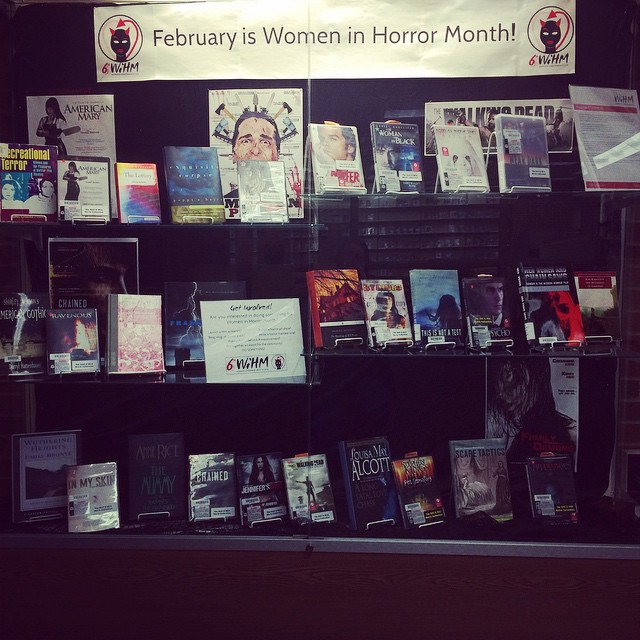And now, for Women in Horror Month, reviewer David Simms interviews Lauren Oliver. 
 Lauren is the author of many YA novels, including the Delirium trilogy, Before I Fall, and Panic (soon to be a movie). She has also written for adults (Rooms) and children( The Spindlers and Liesl & Po). Her newest book, the YA thriller Vanishing Girls, will be released in March of 2015.
Lauren is the author of many YA novels, including the Delirium trilogy, Before I Fall, and Panic (soon to be a movie). She has also written for adults (Rooms) and children( The Spindlers and Liesl & Po). Her newest book, the YA thriller Vanishing Girls, will be released in March of 2015.
Lauren enjoys reading, cooking, traveling, dancing, running, and making up weird songs. She divides her time between Brooklyn, upstate New York, and various hotel rooms.
Dave: In Vanishing Girls, mental health is a major issue. Thank you for delving into this. As a special education teacher/therapist for teens, I don’t see enough writers tackling it. Do you think it’s something teens (both sexes) need to be aware of?
Lauren: Well, yes, sure–I think everyone of almost every age should be educated about various kinds of mental illnesses and, more generally speaking, about the diversity of human experience. It’s funny, I never set out to write about mental health issues or about “difficult” topics; I simply write what I know. And I know people with mental health issues, and addiction disorders, etc. It’s part of the human condition.
Dave: Following this, most writers I’ve met, from the biggest in the world down to the scribblers and wishers, have demons they have battled. You really hit on some tough points for teens. Do you feel that embracing your past helps you as a writer and subsequently helps your readers?
Lauren: Yes, absolutely–writers are always on some level writing about their own experiences, things they’ve known, perceived, thought about, dreamed of. The same is true of me. I don’t consciously choose to broach difficult topics or to show teens struggling with difficult scenarios; that’s a reflection of my memories and also my understanding of the emotional content of adolescence, how tough and alienating it can be.
Dave: At a major conference recently, I listened to a panel of “adult” writers who are jumping into the YA fray. They were saying that they can knock out a YA novel in full within 6 weeks. As a published YA author myself, I was frustrated to see YA treated dismissively. Your take?
Lauren: Well, I mean, I don’t know the context of that comment; YA books can be shorter than adult books, which obviously influences how long they take to write. But I would venture to wonder whether the books that authors brag about spending less time and attention on become successful efforts, whether they attract critical praise or the devotion and care of readers? I mean, anyone can write a kind of so-so book, for any audience, in any amount of time. Good books require attention and editing and long term care, for the most part. Then again, some writers are simply fast.
Dave: The sisters in Vanishing Girls display the fragility of sibling relationships and rivalry as well as family dynamics. Do you receive a lot of communication from readers who are seeking guidance?
Lauren: I’ve always received a lot of messages from people who empathize with my books and their main characters, yes. Some of them are seeking guidance and direction but most of them just want to reach out–they find the guidance, I think, in the books themselves.
Dave: The amusement park setting of Vanishing Girls is just great. Is this something straight out of your past?
Lauren: Ha, no. I wish! I was a lifeguard in high school. But I like amusement parks as much as the next girl.
Dave: What are your plans for your next book? Any issues you’d love to tackle or think need to be that haven’t been brought to the spotlight? Is there anything off limits to you?
Lauren: I don’t approach books by identifying issues I want to tackle, although all of my books do end up tackling some heavy issues because that has been my experience of the world and one of the purposes, I think, of writing books in the first place. My next standalone YA, Broken Things, will therefore deal with guilt and criminalization and also with the unhealthy dynamics that can sometimes develop between female friends–but the idea came to me not through its themes but because I became inspired by a real-life criminal case.
Dave: In terms of research, planning, etc., what’s your favorite part of the writing process before sitting down to immerse yourself? What helps you write?
Lauren: Oh, the writing always comes first, the planning and research later, even though I know that sounds weird. I always “write my way in,” meaning that I just sit down for 15-20K words and feel my way through the language into the characters and the world. Then I sit down and think critically about an outline, about the central conflicts and antagonists, etc.
Dave: As a psychologist and therapist/teacher, I often ask other professionals how their childhood impacted career choices and how they go about helping the next generation. Teens today face many new issues and new slants on the ones we grappled with. What role do you believe teachers/guidance counselors have today?
Lauren: That’s a tremendously difficult question for me to answer. I can’t imagine the kind of pressures kids are facing today, but I can venture to guess that they would need the influence of guidance, care, and attention now more than ever, and in particular that they would find great value in face-to-face communication and conversation.
Dave: Do you meet your readers mostly via social media, school/library/bookstore visits, or at conventions?
Lauren: All of the above!
Dave: What’s the best piece of writing advice you’ve ever received and who gave it?
Lauren: My dad–he taught me to write every day.
Dave: What/who are your influences, past and present? When did you know you had to write for a living?
Lauren: I’ve always known I had to write, but I never at any point thought it had to be “for a living” (either then or now!). At a certain point I started writing novels, and at a certain point after that I decided to try and get them published, and at a certain point after that they did get published. But the publishing is only incidentally related to my great love of writing, in a way, which is an intrinsic part of who I am. As for influences, there are simply too many to list.
Dave: Monster Librarian is spotlighting women authors next month (and should EVERY month). I see more females reading in my schools than males, yet while when I was growing up, the trend appeared to be reversed. Why do you think this might be happening?
Lauren: That’s very surprising, actually–when I was a kid, I felt the girls read more than the boys, but then again, that is likely because my sample was quite skewed. In any case, I’m thrilled to hear that girls as well as boys are reading and hope that the continued efflorescence of fabulous literature for teens and children will just encourage more and more kids to read.
Thank you, Lauren, for answering our questions!


 Here’s what Lizzy had to say about her guide:
Here’s what Lizzy had to say about her guide:



Follow Us!